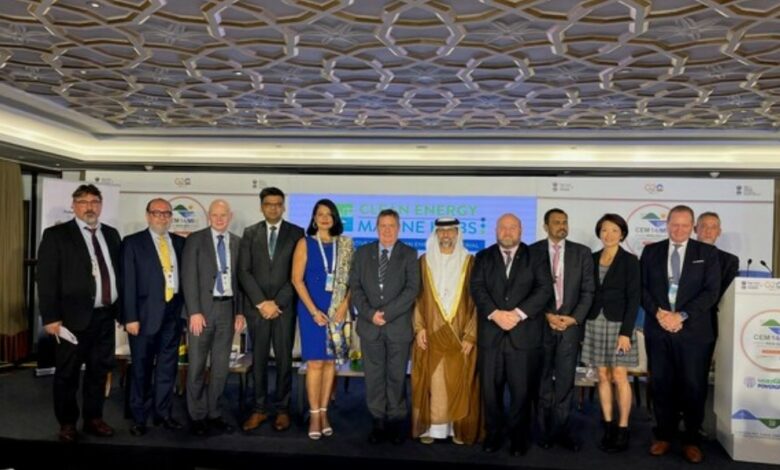Low-carbon fuel production initiative adopted at global summit

The Clean Energy Ministerial (CEM) has today adopted the Clean Energy Marine Hubs Initiative (CEM-Hubs) at a summit in Goa, India.
The first-of-its-kind platform brings together the private sector and governments across the energy-maritime value chain to transform maritime transportation and production hubs for future low-carbon fuels.
The initiative is backed by Canada, Norway, Panama, Uruguay, and the UAE in partnership with the International Chamber of Shipping, and the International Association of Ports & Harbors.
According to the International Renewable Energy Agency (IRENA), the shipping industry is expected to transport at least 50% of all traded low-carbon fuels by 2050. But the production centres, vessels, and port infrastructure required to accommodate expected demand do not currently exist at a commercial scale. So far only one ship in the whole global fleet has been piloted to transport liquefied hydrogen – travelling from Australia to Japan.
For hydrogen derivates such as ammonia and other low-carbon fuels moved by ships, the scale is far from what heavy industries, transport, and other sectors would require. To support the global transition to net-zero targets, shipping is expected to transport between two and up to five times the low-carbon fuels it will consume by 2050.
The CEM-Hub initiative was adopted less than a year after it was first presented, in an unprecedented move by the Clean Energy Ministerial that reflects the immense scale of the problem and the urgency to establish solutions. The initiative, also supported by IRENA and the Global Centre for Maritime Decarbonisation, and progress will be featured at the next COP28 in Dubai.
“The Clean Energy Marine Hubs Initiative is a truly public-private platform between energy, maritime, shipping and finance communities. It represents a unique opportunity to develop concrete implementable actions to ensure greener supply chains globally,” Jean-François Gagné, Head of the Secretariat at the Clean Energy Ministerial, said.
“The momentous speed at which the CEM Hub initiative has been adopted speaks volumes to not only the scale of the challenge before us and the urgency to act, but also the economic opportunity low-carbon energy production offers – particularly to developing economies,” Guy Platten, secretary general of the ICS, added.
